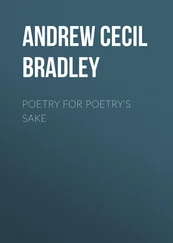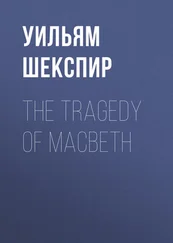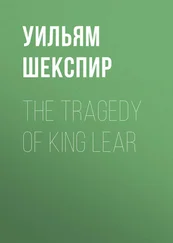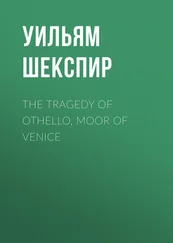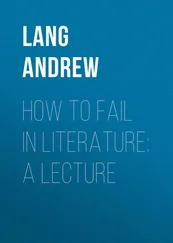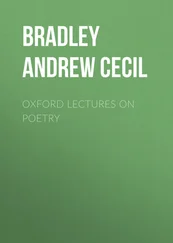Andrew Cecil Bradley - Shakespearean Tragedy - Lectures on Hamlet, Othello, King Lear, Macbeth
Здесь есть возможность читать онлайн «Andrew Cecil Bradley - Shakespearean Tragedy - Lectures on Hamlet, Othello, King Lear, Macbeth» — ознакомительный отрывок электронной книги совершенно бесплатно, а после прочтения отрывка купить полную версию. В некоторых случаях можно слушать аудио, скачать через торрент в формате fb2 и присутствует краткое содержание. Жанр: Биографии и Мемуары, foreign_antique, на английском языке. Описание произведения, (предисловие) а так же отзывы посетителей доступны на портале библиотеки ЛибКат.
- Название:Shakespearean Tragedy: Lectures on Hamlet, Othello, King Lear, Macbeth
- Автор:
- Жанр:
- Год:неизвестен
- ISBN:нет данных
- Рейтинг книги:5 / 5. Голосов: 1
-
Избранное:Добавить в избранное
- Отзывы:
-
Ваша оценка:
- 100
- 1
- 2
- 3
- 4
- 5
Shakespearean Tragedy: Lectures on Hamlet, Othello, King Lear, Macbeth: краткое содержание, описание и аннотация
Предлагаем к чтению аннотацию, описание, краткое содержание или предисловие (зависит от того, что написал сам автор книги «Shakespearean Tragedy: Lectures on Hamlet, Othello, King Lear, Macbeth»). Если вы не нашли необходимую информацию о книге — напишите в комментариях, мы постараемся отыскать её.
Shakespearean Tragedy: Lectures on Hamlet, Othello, King Lear, Macbeth — читать онлайн ознакомительный отрывок
Ниже представлен текст книги, разбитый по страницам. Система сохранения места последней прочитанной страницы, позволяет с удобством читать онлайн бесплатно книгу «Shakespearean Tragedy: Lectures on Hamlet, Othello, King Lear, Macbeth», без необходимости каждый раз заново искать на чём Вы остановились. Поставьте закладку, и сможете в любой момент перейти на страницу, на которой закончили чтение.
Интервал:
Закладка:
The easiest way to bring home to oneself the nature of the tragic character is to compare it with a character of another kind. Dramas like Cymbeline and the Winter's Tale , which might seem destined to end tragically, but actually end otherwise, owe their happy ending largely to the fact that the principal characters fail to reach tragic dimensions. And, conversely, if these persons were put in the place of the tragic heroes, the dramas in which they appeared would cease to be tragedies. Posthumus would never have acted as Othello did; Othello, on his side, would have met Iachimo's challenge with something more than words. If, like Posthumus, he had remained convinced of his wife's infidelity, he would not have repented her execution; if, like Leontes, he had come to believe that by an unjust accusation he had caused her death, he would never have lived on, like Leontes. In the same way the villain Iachimo has no touch of tragic greatness. But Iago comes nearer to it, and if Iago had slandered Imogen and had supposed his slanders to have led to her death, he certainly would not have turned melancholy and wished to die. One reason why the end of the Merchant of Venice fails to satisfy us is that Shylock is a tragic character, and that we cannot believe in his accepting his defeat and the conditions imposed on him. This was a case where Shakespeare's imagination ran away with him, so that he drew a figure with which the destined pleasant ending would not harmonise.
In the circumstances where we see the hero placed, his tragic trait, which is also his greatness, is fatal to him. To meet these circumstances something is required which a smaller man might have given, but which the hero cannot give. He errs, by action or omission; and his error, joining with other causes, brings on him ruin. This is always so with Shakespeare. As we have seen, the idea of the tragic hero as a being destroyed simply and solely by external forces is quite alien to him; and not less so is the idea of the hero as contributing to his destruction only by acts in which we see no flaw. But the fatal imperfection or error, which is never absent, is of different kinds and degrees. At one extreme stands the excess and precipitancy of Romeo, which scarcely, if at all, diminish our regard for him; at the other the murderous ambition of Richard III. In most cases the tragic error involves no conscious breach of right; in some ( e.g. that of Brutus or Othello) it is accompanied by a full conviction of right. In Hamlet there is a painful consciousness that duty is being neglected; in Antony a clear knowledge that the worse of two courses is being pursued; but Richard and Macbeth are the only heroes who do what they themselves recognise to be villainous. It is important to observe that Shakespeare does admit such heroes, 9and also that he appears to feel, and exerts himself to meet, the difficulty that arises from their admission. The difficulty is that the spectator must desire their defeat and even their destruction; and yet this desire, and the satisfaction of it, are not tragic feelings. Shakespeare gives to Richard therefore a power which excites astonishment, and a courage which extorts admiration. He gives to Macbeth a similar, though less extraordinary, greatness, and adds to it a conscience so terrifying in its warnings and so maddening in its reproaches that the spectacle of inward torment compels a horrified sympathy and awe which balance, at the least, the desire for the hero's ruin.
The tragic hero with Shakespeare, then, need not be 'good,' though generally he is 'good' and therefore at once wins sympathy in his error. But it is necessary that he should have so much of greatness that in his error and fall we may be vividly conscious of the possibilities of human nature. 10Hence, in the first place, a Shakespearean tragedy is never, like some miscalled tragedies, depressing. No one ever closes the book with the feeling that man is a poor mean creature. He may be wretched and he may be awful, but he is not small. His lot may be heart-rending and mysterious, but it is not contemptible. The most confirmed of cynics ceases to be a cynic while he reads these plays. And with this greatness of the tragic hero (which is not always confined to him) is connected, secondly, what I venture to describe as the centre of the tragic impression. This central feeling is the impression of waste. With Shakespeare, at any rate, the pity and fear which are stirred by the tragic story seem to unite with, and even to merge in, a profound sense of sadness and mystery, which is due to this impression of waste. 'What a piece of work is man,' we cry; 'so much more beautiful and so much more terrible than we knew! Why should he be so if this beauty and greatness only tortures itself and throws itself away?' We seem to have before us a type of the mystery of the whole world, the tragic fact which extends far beyond the limits of tragedy. Everywhere, from the crushed rocks beneath our feet to the soul of man, we see power, intelligence, life and glory, which astound us and seem to call for our worship. And everywhere we see them perishing, devouring one another and destroying themselves, often with dreadful pain, as though they came into being for no other end. Tragedy is the typical form of this mystery, because that greatness of soul which it exhibits oppressed, conflicting and destroyed, is the highest existence in our view. It forces the mystery upon us, and it makes us realise so vividly the worth of that which is wasted that we cannot possibly seek comfort in the reflection that all is vanity.
4
In this tragic world, then, where individuals, however great they may be and however decisive their actions may appear, are so evidently not the ultimate power, what is this power? What account can we give of it which will correspond with the imaginative impressions we receive? This will be our final question.
The variety of the answers given to this question shows how difficult it is. And the difficulty has many sources. Most people, even among those who know Shakespeare well and come into real contact with his mind, are inclined to isolate and exaggerate some one aspect of the tragic fact. Some are so much influenced by their own habitual beliefs that they import them more or less into their interpretation of every author who is 'sympathetic' to them. And even where neither of these causes of error appears to operate, another is present from which it is probably impossible wholly to escape. What I mean is this. Any answer we give to the question proposed ought to correspond with, or to represent in terms of the understanding, our imaginative and emotional experience in reading the tragedies. We have, of course, to do our best by study and effort to make this experience true to Shakespeare; but, that done to the best of our ability, the experience is the matter to be interpreted, and the test by which the interpretation must be tried. But it is extremely hard to make out exactly what this experience is, because, in the very effort to make it out, our reflecting mind, full of everyday ideas, is always tending to transform it by the application of these ideas, and so to elicit a result which, instead of representing the fact, conventionalises it. And the consequence is not only mistaken theories; it is that many a man will declare that he feels in reading a tragedy what he never really felt, while he fails to recognise what he actually did feel. It is not likely that we shall escape all these dangers in our effort to find an answer to the question regarding the tragic world and the ultimate power in it.
It will be agreed, however, first, that this question must not be answered in 'religious' language. For although this or that dramatis persona may speak of gods or of God, of evil spirits or of Satan, of heaven and of hell, and although the poet may show us ghosts from another world, these ideas do not materially influence his representation of life, nor are they used to throw light on the mystery of its tragedy. The Elizabethan drama was almost wholly secular; and while Shakespeare was writing he practically confined his view to the world of non-theological observation and thought, so that he represents it substantially in one and the same way whether the period of the story is pre-Christian or Christian. 11He looked at this 'secular' world most intently and seriously; and he painted it, we cannot but conclude, with entire fidelity, without the wish to enforce an opinion of his own, and, in essentials, without regard to anyone's hopes, fears, or beliefs. His greatness is largely due to this fidelity in a mind of extraordinary power; and if, as a private person, he had a religious faith, his tragic view can hardly have been in contradiction with this faith, but must have been included in it, and supplemented, not abolished, by additional ideas.
Читать дальшеИнтервал:
Закладка:
Похожие книги на «Shakespearean Tragedy: Lectures on Hamlet, Othello, King Lear, Macbeth»
Представляем Вашему вниманию похожие книги на «Shakespearean Tragedy: Lectures on Hamlet, Othello, King Lear, Macbeth» списком для выбора. Мы отобрали схожую по названию и смыслу литературу в надежде предоставить читателям больше вариантов отыскать новые, интересные, ещё непрочитанные произведения.
Обсуждение, отзывы о книге «Shakespearean Tragedy: Lectures on Hamlet, Othello, King Lear, Macbeth» и просто собственные мнения читателей. Оставьте ваши комментарии, напишите, что Вы думаете о произведении, его смысле или главных героях. Укажите что конкретно понравилось, а что нет, и почему Вы так считаете.





